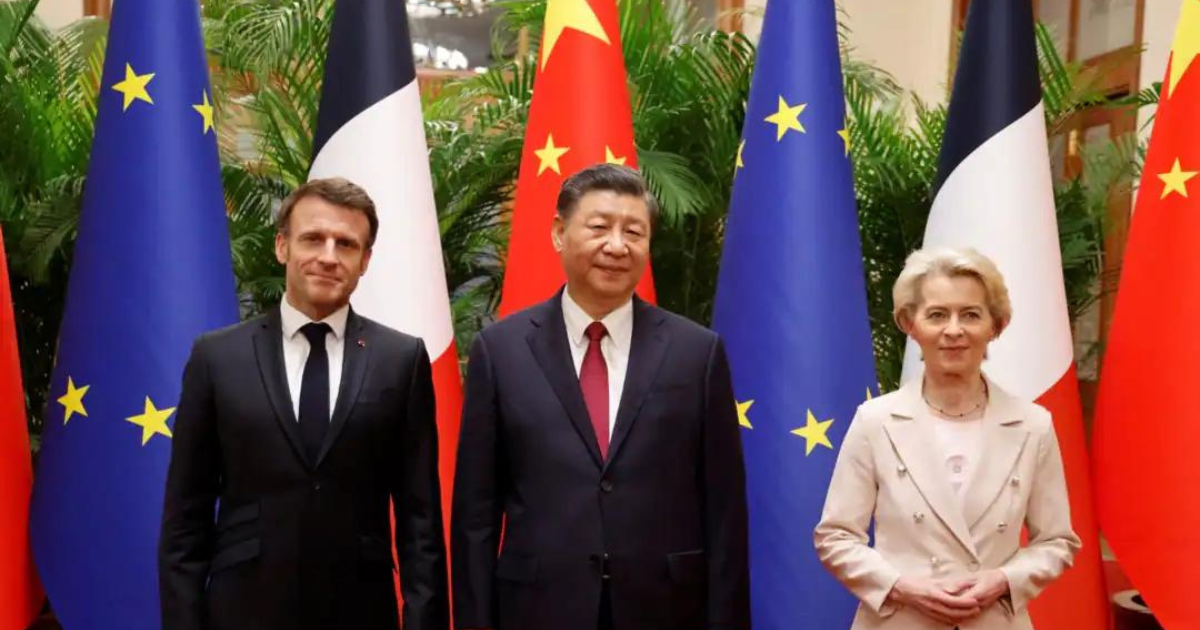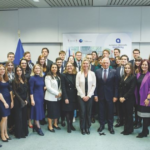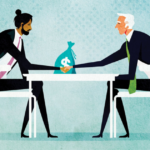Two of Europe’s top political heavyweights, French President Emmanuel Macron and European Commission President Ursula von der Leyen, recently held talks with China’s President Xi Jinping, at a time when the EU-Sino relationship is at a serious crossroads. The discussions addressed various topics, including the ongoing crisis in Ukraine, EU-China business and trade relations, and the EU’s dependence on China.
Addressing the Ukraine Crisis
Following a grand military ceremony and bilateral and trilateral talks, Macron called on Xi to “bring back Russia to reason.” He said China could also help bring Moscow, with which Beijing maintains friendly relations, back to the negotiating table more than a year after the Kremlin launched its full-scale invasion of Ukraine. Xi responded by saying that all countries should respect commitments on not using nuclear weapons and “refrain from any action that would lead to further deterioration of the crisis or even to it getting out of control.”
Von der Leyen added that the EU expects China to promote a just peace that respects Ukraine’s sovereign and territorial integrity, which is one of the cornerstones of the U.N. charter. She also encouraged Xi to reach out to Ukraine’s President Zelenskyy, to which Xi reiterated his willingness to speak when conditions and time are right.
Discussing EU-China Business and Trade Relations
Von der Leyen also discussed EU-China business and trade relations, expressing concerns over the ballooning trade deficit with China, the enforcement of intellectual property rights, and EU companies not being allowed to operate on a level playing field in the Chinese market. China was the largest source of EU imports and the third largest buyer of EU goods in 2022, highlighting Beijing’s economic importance for Europe.
The EU looks to develop economic ties with China but also to reaffirm a close political and cultural relationship with the United States. This task has become particularly difficult as the U.S. administration ramps up its anti-Beijing rhetoric, more so in the wake of Russia’s invasion of Ukraine, which has left Europe even more reliant on the U.S. for energy and security.
The EU’s Dependence on China
The 27-member bloc consequently walks a tightrope, looking to develop economic ties with China while reducing dependencies on the country. The EU was heavily reliant on Russia for energy, and it now wants to avoid making similar mistakes with other parts of the world. “Overall, there is a consensus that we need to do something about our overreliance on China and ensure they don’t blackmail small member states,” says Niclas Poitiers, a research fellow at Bruegel.
The discussions between the EU leaders and Xi reflect the complexity of the EU-Sino relationship amidst various challenges, including the ongoing crisis in Ukraine and the EU’s dependence on China. The EU needs to maintain a delicate balance between developing economic ties with China and reducing its dependencies on the country while reaffirming its close political and cultural relationship with the United States. It remains to be seen how these challenges will be addressed in the future.






